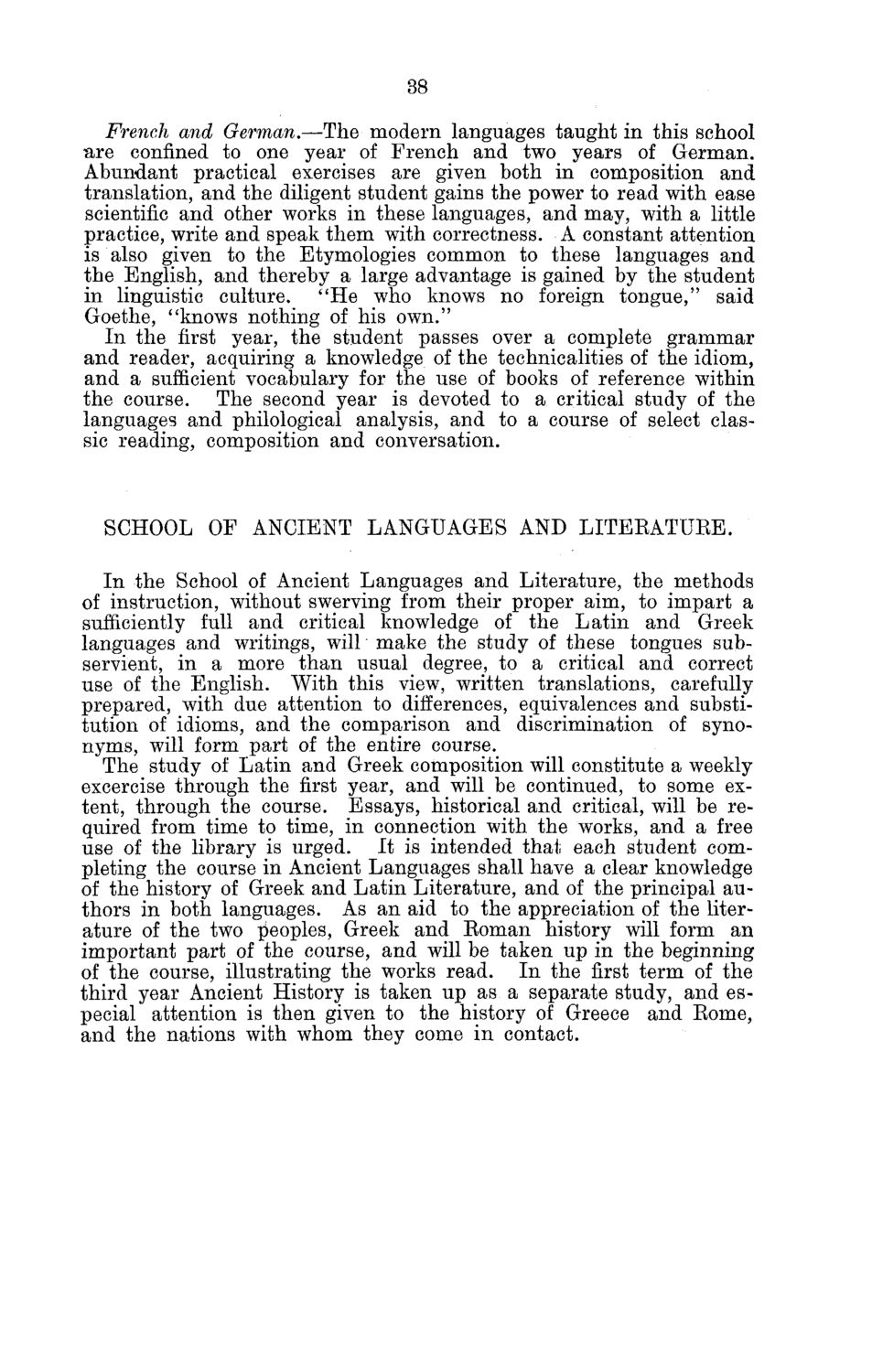| |
| |
Caption: Board of Trustees Minutes - 1880
This is a reduced-resolution page image for fast online browsing.

EXTRACTED TEXT FROM PAGE:
38 French and German.—The modern languages taught in this school nre confined to one year of French and two years of German. Abundant practical exercises are given both in composition and translation, and the diligent student gains the power to read with ease scientific and other works in these languages, and may, with a little practice, write and speak them with correctness. A constant attention is also given to the Etymologies common to these languages and the English, and thereby a large advantage is gained by the student in linguistic culture. "He who knows no foreign tongue," said Goethe, "knows nothing of his own." In the first year, the student passes over a complete grammar and reader, acquiring a knowledge of the technicalities of the idiom, and a sufficient vocabulary for the use of books of reference within the course. The second year is devoted to a critical study of the languages and philological analysis, and to a course of select classic reading, composition and conversation. SCHOOL OF ANCIENT LANGUAGES AND LITEEATUEE. In the School of Ancient Languages and Literature, the methods of instruction, without swerving from their proper aim, to impart a sufficiently full and critical knowledge of the Latin and Greek languages and writings, will make the study of these tongues subservient, in a more than usual degree, to a critical and correct use of the English. With this view, written translations, carefully prepared, with due attention to differences, equivalences and substitution of idioms, and the comparison and discrimination of synonyms, will form part of the entire course. The study of Latin and Greek composition will constitute a weekly excercise through the first year, and will be continued, to some extent, through the course. Essays, historical and critical, will be required from time to time, in connection with the works, and a free use of the library is urged. It is intended thai, each student completing the course in Ancient Languages shall have a clear knowledge of the history of Greek and Latin Literature, and of the principal authors in both languages. As an aid to the appreciation of the literature of the two peoples, Greek and Eoman history will form an important part of the course, and will be taken up in the beginning of the course, illustrating the works read. In the first term of the third year Ancient History is taken up as a separate study, and especial attention is then given to the history of Greece and Eome, and the nations with whom they come in contact.
| |